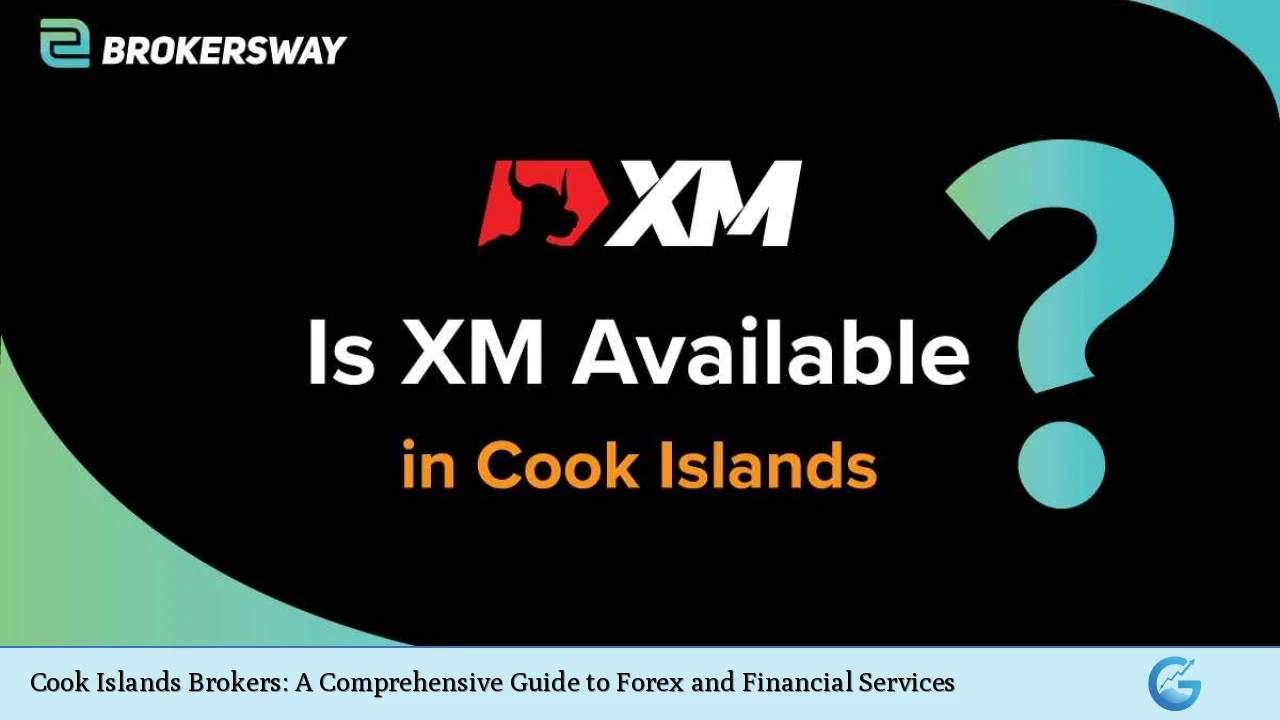The Cook Islands, a small island nation in the South Pacific, has emerged as an intriguing destination for forex and financial services. This comprehensive guide will explore the landscape of Cook Islands brokers, regulatory environment, and key considerations for traders and investors.
| Aspect | Details | Implications |
|---|---|---|
| Regulatory Body | Financial Supervisory Commission (FSC) | Oversees financial institutions and ensures compliance |
| Key Legislation | Banking Act 2011, Financial Transactions Reporting Act 2017 | Provides legal framework for financial services |
| Broker Types | Forex, CFD, Cryptocurrency | Diverse range of trading options available |
Regulatory Environment
The Cook Islands’ financial sector is regulated by the Financial Supervisory Commission (FSC), which plays a crucial role in maintaining the integrity of the industry. The FSC is responsible for licensing, supervising, and regulating financial institutions operating in the Cook Islands.
Key aspects of the regulatory environment include:
- Strict licensing requirements for brokers
- Regular audits and compliance checks
- Anti-money laundering (AML) and counter-terrorism financing (CTF) measures
- Client fund protection mechanisms
The Cook Islands has implemented comprehensive legislation to combat financial crime and ensure the stability of its financial system. This includes the Banking Act 2011 and the Financial Transactions Reporting Act 2017, which align with international standards.
Broker Licensing and Requirements
To operate legally in the Cook Islands, brokers must obtain a license from the FSC. The licensing process is rigorous and involves several steps:
- Submission of a detailed business plan
- Proof of sufficient capital
- Background checks on key personnel
- Implementation of robust risk management systems
- Establishment of a physical presence in the Cook Islands
Licensed brokers are required to maintain strict compliance with FSC regulations, including regular reporting and audits. This ensures that brokers operate transparently and in the best interests of their clients.
Types of Brokers in the Cook Islands
The Cook Islands hosts various types of brokers, catering to different trading needs:
- Forex Brokers: Offering currency pair trading
- CFD Brokers: Providing contracts for difference on various assets
- Cryptocurrency Brokers: Facilitating digital asset trading
Many brokers offer a combination of these services, allowing traders to diversify their portfolios within a single platform.
Advantages of Trading with Cook Islands Brokers
Choosing a Cook Islands broker can offer several benefits:
- Regulatory Oversight: The FSC’s strict regulations provide a level of security for traders.
- Tax Efficiency: The Cook Islands offers favorable tax conditions for international businesses.
- Privacy: While maintaining compliance with international standards, the Cook Islands provides a degree of financial privacy.
- Diverse Trading Options: Brokers often offer a wide range of financial instruments.
- Advanced Technology: Many Cook Islands brokers invest in cutting-edge trading platforms and tools.
Challenges and Considerations
While there are advantages, traders should also be aware of potential challenges:
- Limited Local Market: The Cook Islands’ small population means most trading activity is international.
- Distance from Major Financial Centers: This can potentially impact execution speeds and liquidity.
- Reputation Management: The jurisdiction has worked to improve its image in recent years, but some still associate it with offshore financial activities.
- Currency Considerations: The New Zealand Dollar is the primary currency, which may require additional conversions for some traders.
Selecting a Cook Islands Broker
When choosing a Cook Islands broker, consider the following factors:
- Regulatory status and compliance history
- Range of financial instruments offered
- Trading platform and technology
- Fee structure and transparency
- Customer support and educational resources
- Execution speed and order types available
- Fund security measures
It’s crucial to conduct thorough due diligence before committing to any broker. Verify the broker’s license status with the FSC and read user reviews from reputable sources.
Future Outlook for Cook Islands Brokers
The Cook Islands financial sector continues to evolve, with a focus on:
- Enhancing regulatory frameworks to meet international standards
- Attracting reputable financial institutions
- Developing fintech capabilities
- Balancing privacy with transparency requirements
- Expanding the range of financial services offered
As global financial regulations tighten, the Cook Islands is positioning itself as a compliant yet business-friendly jurisdiction for brokers and traders alike.
Conclusion
Cook Islands brokers offer a unique proposition in the global financial landscape. With a robust regulatory framework, tax advantages, and a commitment to privacy, the jurisdiction attracts both brokers and traders. However, as with any financial decision, it’s essential to approach Cook Islands brokers with due diligence and a clear understanding of the risks and benefits involved.
FAQs
- Are Cook Islands brokers regulated?
Yes, Cook Islands brokers are regulated by the Financial Supervisory Commission (FSC). - Can international traders use Cook Islands brokers?
Most Cook Islands brokers accept international clients, subject to their own policies and local regulations. - What trading platforms do Cook Islands brokers typically offer?
Many offer popular platforms like MetaTrader 4/5, alongside proprietary solutions. - Is it safe to trade with a Cook Islands broker?
Licensed brokers are subject to strict regulations, but traders should always conduct their own research. - What is the minimum deposit for Cook Islands brokers?
Minimum deposits vary by broker, ranging from as low as $5 to several thousand dollars for premium accounts.

